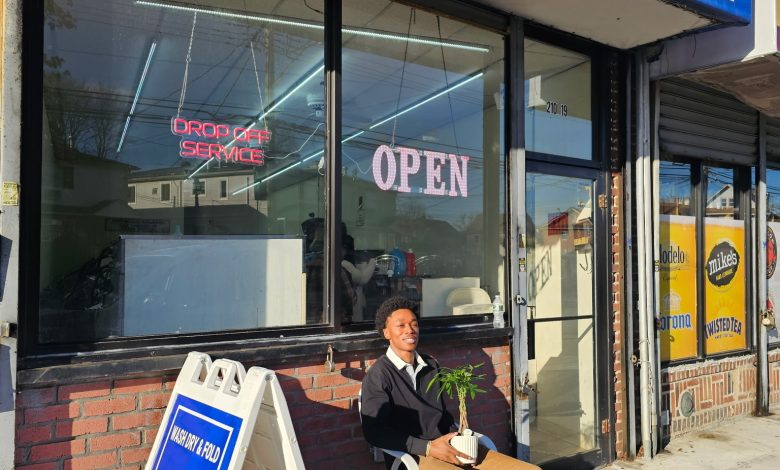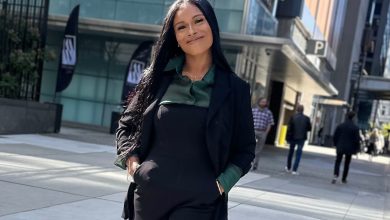How Black youth are reclaiming entrepreneurship

A new generation of entrepreneurs is reshaping the future of business and they are younger, louder, and more unapologetic than ever before. Across the country, Black Gen Z and Gen Alpha creators are launching brands, building communities, and managing thriving businesses. These young innovators aren’t just chasing profit, they’re setting new standards.
For Brandon “Don” Hollingsworth, 26, opening Don’s Laundry, a laundromat in Queens Village was a natural progression for him. His parents were his examples of entrepreneurship, owning two storefronts of their own. Brandon says they taught him everything from start to finish about running this business. While many entrepreneurs seek capital from banks and investors, like most of his generation, Hollingsworth took a different route with a lot of money saved on his own and some from his parents. To pay the closing costs of his lawyer, he resold sneakers. “I had enough capital and I made the right deal. It just worked out,” he said.
In high school, Hollingsworth played basketball for the Amateur Athletic Union (AAU), traveling across the country and picking up lessons along the way. Some of what he says he learned that helped prepare him for entrepreneurship are “teamwork, leadership skills,and being coachable.” “Being coachable is a big thing,” he added. “A lot of people have a big ego and think they know it all and you may know a lot, but being coachable is very important I believe.”
Hollingsworth only attended two years of college, leaving during the pandemic. The uncertainty motivated him to intern with his father and learn the laundromat business fully. “I really fell in love with it and there was real opportunity there and so I didn’t go back to school,” he said.. He credits the classroom for some of his education, but says hands-on learning was the best option for him. The one thing his father couldn’t teach him was marketing through social media. “I’ve started with TikTok and Instagram. It’s definitely a big difference, but other than that the way we run our businesses is very similar.”
These young entrepreneurs are part of a much larger movement. According to a study done by business technology platform Square, many members of Gen Z say they plan to start a business and many already have. Growing up in the digital era has allowed them a toolkit older generations didn’t have: access to knowledge, communities to learn from, and platforms to market themselves freely. As a result, many are bypassing traditional paths like college and turning to entrepreneurship for job security.
This moment is not new. The long history of Black entrepreneurship in America dates back before the Civil War. Tulsa’s Greenwood District was a hub of thriving Black businesses. Barbershops, hair salons, and bakeries like Lee Lee’s Baked Goods in Harlem have long served as community pillars of Black economic life and empowerment. The difference now? Speed and scale. A viral video can launch a business overnight, allowing today’s entrepreneurs to be self-funded, self-taught, and self-promoted — all at the touch of a fingertip.
However, digital access doesn’t erase all obstacles. Burnout, constant comparison, and distractions on social media can take a toll on young business owners — as can the lack of support outside digital spaces and not being taken seriously. The New York City Black Chamber of Commerce (NYCBCC) , which provides services for business owners, has yet to create a space for this demographic of entrepreneurs. “Unless the child comes from a family where there’s an entrepreneurial mindset, then they’ll start these businesses on their own,” said Tosha Miller, president of NYCBCC. She added that, in many cases, youth-run businesses are actually operated by parents using the child’s name.
Some entrepreneurs aren’t even waiting until they are old enough to vote to get started in business. Lane1, a Brooklyn-based sneaker company manufactured in Italy, launched on the 14th birthday of its owner and designer Amira-Dior Traynham-Artis.
Two years prior, Traynham-Artis’ mother stumbled upon a footwear design software that she hoped would keep her child busy. While her usual medium for art was drawing on paper, Traynham-Artis found that designing sneakers was just as fun. Her first pair was for herself only, but with encouragement from her community and funding from her mother, Lane 1 was born.
“I never told this story,” says Kenesha Traynham-Cooper, Traynham-Artis’ mother. “But I had money saved for a house and never really expected the business to bloom. I was just wanting my daughter to see that whatever she touches, whatever she thinks of can actually come to fruition.”
Similar to Hollingsworth, Traynham-Artis has an example of entrepreneurship in her mother. Currently the District Leader for Bedford Stuyvesant, Brooklyn, Traynham-Cooper used to run a daycare and teach financial literacy classes. “I was her first student,” said Traynham-Artis.

Now at 16, Traynham-Artis is deliberate in the inclusion of Black culture and community in Lane1. Last year, she created a collection of sneakers inspired by the Divine Nine historically Black Greek-letter fraternities and sororities. As part of her and her mother’s philanthropic efforts, they are collecting sneakers and other footwear items to bring to Ethiopia. Although she is grateful to be able to do this work and is excited to create, she admits to the overwhelm of constantly managing her schedule, school life, and other activities.
Moving forward, as her peers enter into the workforce, the most important thing for her is not the business aspect of Lane1, but the creative element. “Getting the money and then putting it back into the business is important. For me, my main focus will forever be having control of the design. I love having the choice of making all these different designs and putting it out on my time. I need control of the design. My mom, my manager, they can do the rest,” she said.




